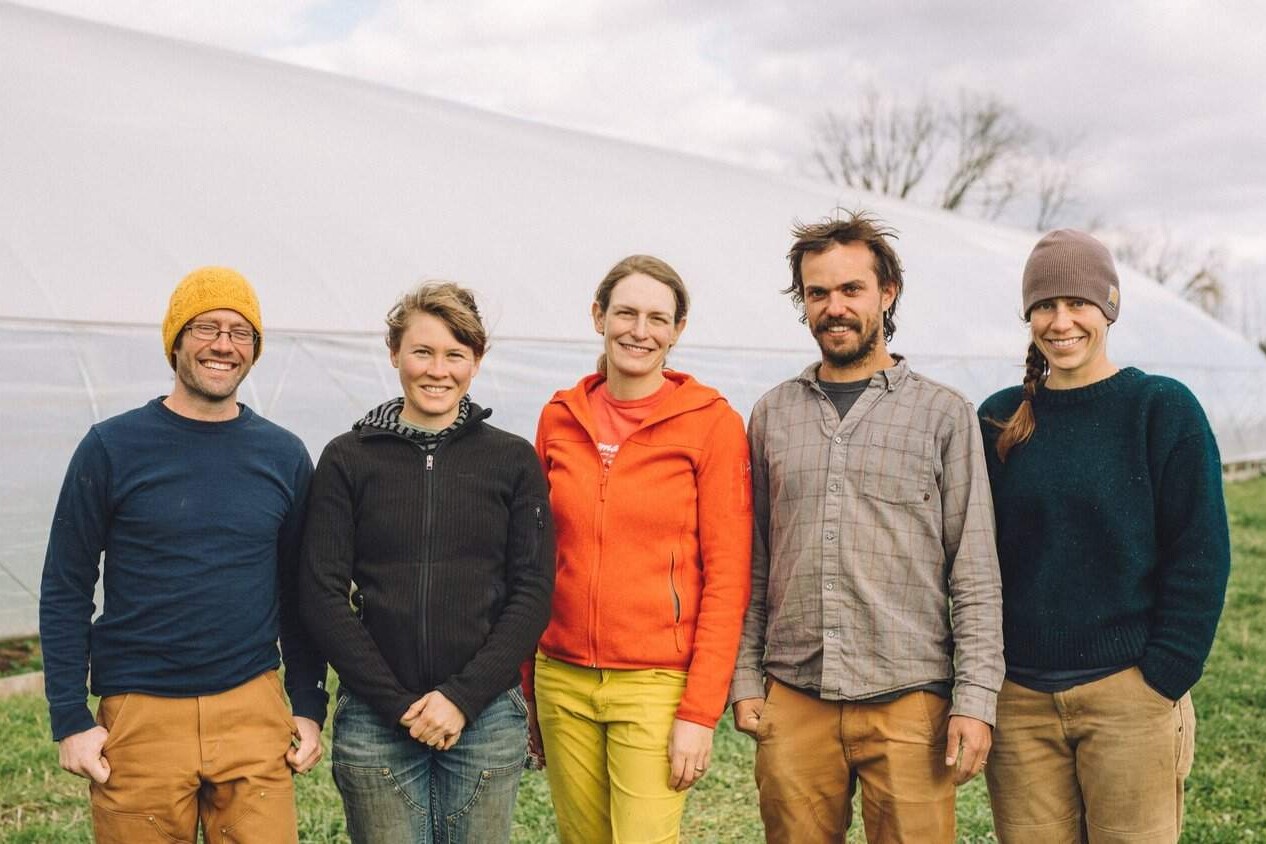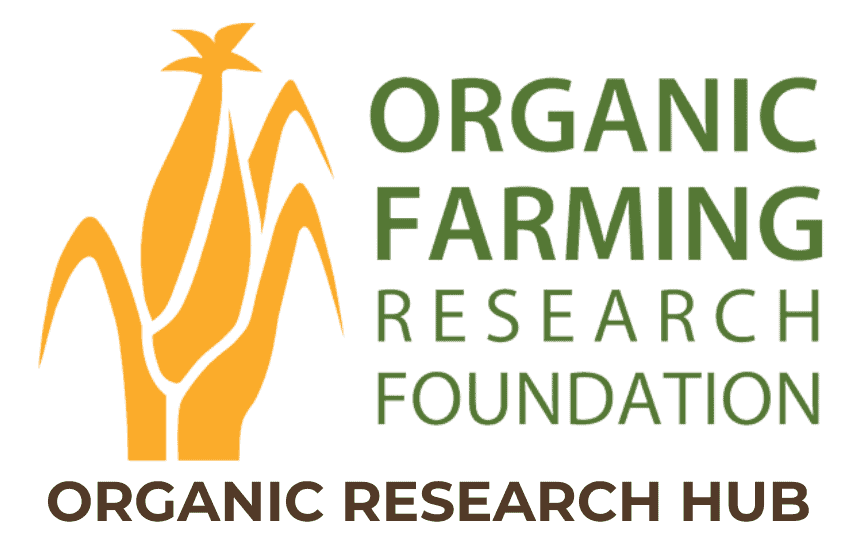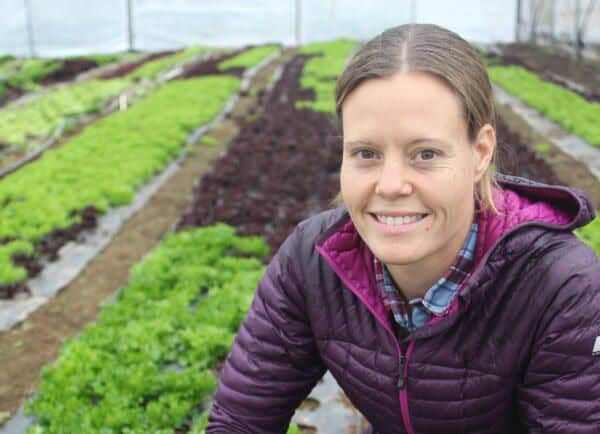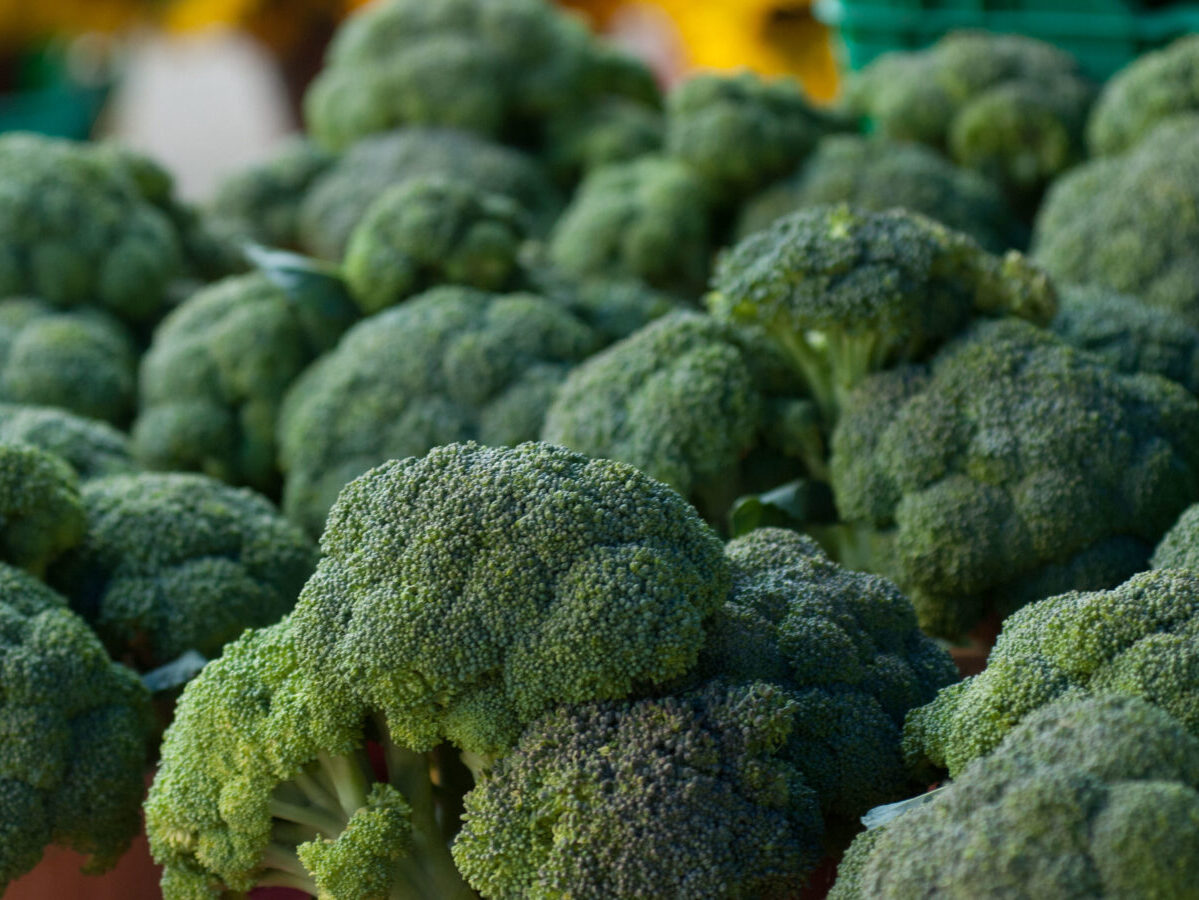OFRF Farmer-Led Trials: How Row Spacing affects Yield in Beet and Radish Beds
Nathan Lada, Green Things Farm Collective

Farm Trial Overview
Green Things Farm Collective is a diversified vegetable farm located in Ann Arbor, Michigan. The collaboration of farmers that make up The Collective produce an array of fresh market vegetables and cut flowers for CSA memberships, farmers markets, small grocery and small wholesale markets. The bulk of the production takes place from early April to October in 5 acres of a permanent no-till/low-till, deep mulch bed system. The farmers also raise beef cattle and manage 40 acres of woods.
The Collective wanted to understand what impact row spacing of direct-seeded crops had on marketable crop yields. The trial compared 5 and 6 row plantings of ‘French Breakfast’ radishes, 5 and 6 row plantings of ‘Rover’ radishes, and 3 and 4 row plantings of ‘Early Wonder’ beets. The planting density remained constant within each row, while the number of rows per bed changed. The marketable yield (i.e. yield that was selected for market) was weighed and recorded for each planting. The plantings were planned as a part of the farm field plan, and were located throughout the farm. The initial plantings began in early April, with final harvest dates in early July.
For full details on the study’s methodology and results, check out the OFRF Farmer Led Trials Blog, or read the final report linked here.
Funding Amount
$1,500
Funding Year
2024Location
Ann Arbor, Michigan
Collaborators
Organic Farming Research Foundation
Key Findings
- For beets, yield was slightly higher in the four row beds, but this was not statistically significant.
- In radish, yield was slightly higher at a 5 row spacing vs 6 row, but was also not statistically significant.
- There was a high degree of variability within marketable yield among all plots, thus further investigation and some experimental design modifications would be helpful.
Region
Midwest
Topic
Cropping Systems
Category
Vegetables/Fruits
Year Published
2025



